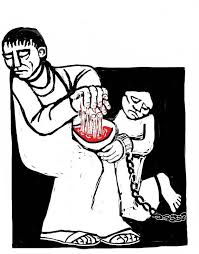 What to DO in Lent 2013?
What to DO in Lent 2013?
Is this a season to go deeper and to reflect on updating one’s theology?
Today I had a very interesting conversation that dealt with Christianity and theology. It seemed to me that the person who I was talking with assumed that I might be hesitant about talking with other people about the theory of evolution.
Question: “As a person who goes to church, are you comfortable teaching about evolution?
Answer: In our (United Church of Canada) New Creed we say:
“We believe in God:
who has created and is creating,”
Question:You mean it didn’t happen all at once?
Answer: No. In our faith tradition we believe that creation is an on-going process. God’s life-giving continues to be present in creation each day.”
According to theologian Bruce Sanguin,
“The evolutionary universe is a sacred text revealing god’s purposes; intentions, and very being.”*
Isaiah 43:19
I am about to do a new thing;
now it springs forth, do you not perceive it?
I will make a way in the wilderness
and rivers in the desert.
Where did the idea come from that the evolutionary theories of our scientific knowledge might not be compatible with our religious faith?
Is this another false dualism?
Maybe its not just my theology that needs to be updated?
* Bruce Sanguin, Darwin, Divinity and the Dance of the Cosmos, page 131
‘Rebuild My Church’ – by Jim Wallis of Sojourners
Francis. Pope Francis. This could be good news for the Catholic Church, for the whole church, and for the world. Let’s hope and pray so.
Jorge Bergoglio, the Argentinian cardinal from Buenos Aires, will be the first pope from Latin America and the first outside of Europe in a millennium. That’s good news from the start. And the world is now learning about the 76-year-old new pontiff whose election caused the white smoke to rise in the night skies of Rome to the cheers of tens of thousands of people in St. Peter’s Square. A Jesuit scholar, he seems to be a humble man who lives simply, choosing to live in a small apartment instead of the archbishop’s palace, and travel on buses and trams instead of in the church limousine.
Will simplicity and social justice become the witness of the Roman Catholic Church around the world — and will it emanate from the first pope from the Global South, which is clearly the growing future of the church? What good news that would be.
While a theological conservative, Cardinal Bergoglio is also known for his compassion — a good combination reminiscent of Archbishop Oscar Romero of El Salvador or Dorothy Day of the Catholic Worker Movement. In Buenos Aires, the cardinal showed real compassion for HIV victims, and he sternly rebuked priests who refused to baptize children born out of wedlock. There are also reports of the new pope being a “bridge builder” between Jesuits and other orders and, more widely, between conservatives and liberals in the church. How welcome that would be.
In all I read about the new pope following the announcement, two quotes stood out to me. The first was about the poor and the world’s massive inequality — from the perspective of one of the world’s poorest places.
“We live in the most unequal part of the world, which has grown the most yet reduced misery the least,” said Bergoglio at a 2007 Latin American bishops meeting, according to National Catholic Reporter. “The unjust distribution of goods persists, creating a situation of social sin that cries out to Heaven and limits the possibilities of a fuller life for so many of our brothers.”
The second was about clerical privilege and insular church hierarchy. That ecclesial isolation has set the terms of the Catholic Church’s reputation and behavior for far too long.
The new pope said:
“We have to avoid the spiritual sickness of a self-referential church. It’s true that when you get out into the street, as happens to every man and woman, there can be accidents. However, if the church remains closed in on itself, self-referential, it gets old. Between a church that suffers accidents in the street, and a church that’s sick because it’s self-referential, I have no doubts about preferring the former.”
I think the term “self-referential” is a powerful insight and prophetic critique of what the church’s institutions have become. Reverencing and worshiping God is so very different from doing the same for the structures of the church.
And if that preference of the new Pope Francis prevails in Rome, might it even begin to change those church structures?
I fervently hope and pray that a Global South pope who deliberately chooses his name from Francis of Assisi will be that agent of change. In the 12th century, the young Francis of Assisi heard a call that became his mission — “rebuild my Church” — straight from the voice of God. And today, the church needs rebuilding again — to be what the church was meant to be. But to make those changes, Pope Francis will need to address some very fundamental issues.
First, the church must indeed be transformed to become known, as Francis of Assisi was, as the defender of the poorest and most vulnerable. Biblically speaking, that should be the church’s first and primary reputation. Sadly, the Catholic Church’s hierarchy is not best known for those primary issues today.
Second, Pope Francis must address, with both compassion and justice, the enormously painful reality of church’s sexual abuse of children. In the United States and around the world, the horrible sins of pedophile priests and cover-up bishops must be repented and reconciled. Until that happens, the church’s reputation can never be restored.
Third, the new pope must reverse and redress the Vatican’s recent censure and, in my view, mistreatment of its own sisters. These Catholic religious women around the world represent the best of Catholic social teaching. Pope Francis could and should embrace the women of the church instead of suspecting and disrespecting them.
While these are enormous challenges for Pope Francis, the grace of God is sufficient for faithful church leaders to lead. And Jorge Bergoglio is said to be such a man of God — fervent in personal faith and consistent prayer.
So let us all do what the first thing the new Pope Francis asked the people in the square to do: pray for him.
Jim Wallis is CEO of Sojourners. His forthcoming book, On God’s Side: What Religion Forgets and Politics Hasn’t Learned about Serving the Common Good, is set to release in April. Follow Jim on Twitter @JimWallis.
What to DO in Lent 2013?
Is this a season to go deeper and to reflect on updating one’s theology?
 Yesterday the reflection was about generosity. Today:
Yesterday the reflection was about generosity. Today:
“Rejoice always, pray without ceasing,
give thanks in all circumstances;
for this is the will of God in Christ Jesus for you.
Do not quench the Spirit.”
1 Thessalonians 5: 16 – 19 NRSV
David Hallman asks an excellent question. He writes, ” How can we be expected to give thanksgiving in all circumstances when there is so much suffering, poverty and ecological destruction in the world?”*
Hallman’s response is that we can give thanks, and express our gratitude, for the life-enhancing gifts that God has shared among God’s children, and in God’s world. It is not simply one’s material well-being, or lack thereof.
Is it possible that we can take responsibility for our attitude?
Can an attitude of gratitude enhance our generosity as a response to God’s generosity?
Can anyone improve the spirit of the times through modelling a generosity of Spirit?
The earth has yielded its increase;
God, our God, has blessed us.
May God continue to bless us;
let all the ends of the earth revere God.
Psalm 67: 6,7
* David Hallman, Spiritual Values for Earth Community, page 35
What to DO in Lent 2013?
Is this a season to go deeper and to reflect on updating one’s theology?

Grapes in Prince Edward County
Of course, one of things that we worship in Canada is money, and the economy. It is called, “econotheism.”
A basic statement of belief in the worship of money and the economy is that there isn’t enough of anything. This kind of thinking ignores the abundance of God’s creation, and the abundant gifts of God’s children.
My friend Yvonne Stewart reflected on the false doctrine of “scarcity” at her congregation’s Annual Meeting. Here’s what Yvonne offered to her congregation:
“My major point was that when our present secular society is in debt, we seek to pay it off (for the sake of our children’s future) on the basis of scarcity of money, which justifies making the kind of cuts that leave many members of society worse off.
“God’s people are called in times of deprivation to enter into relationship with the mystery at the heart of life;
-
which is the source of wisdom, love, justice, compassion;
-
to remember God’s abundance,
-
and make decisions which model to our children how we ensure the well being of all members of the community under constrained circumstances, and trust that these decisions will lead to new and faithful directions.”
What if …. what if we were to concentrate on abundance and sharing, rather than scarcity and greed?
What if … what if my life were to be one in which others could see generosity being lived as a spiritual value?
 Like everyone, I have my blind spots and stereotypes—like, my assumption that small towns aren’t all that accepting of differences, and if, just for instance, you’re an LGBT person you should probably head for the big city as soon as you can. Well, let me tell you an Easter story that blows a hole in my stereotypes!
Like everyone, I have my blind spots and stereotypes—like, my assumption that small towns aren’t all that accepting of differences, and if, just for instance, you’re an LGBT person you should probably head for the big city as soon as you can. Well, let me tell you an Easter story that blows a hole in my stereotypes!








